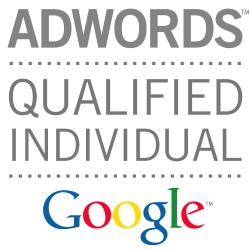I was reading The Truth About Validation and I felt the need to respond. First off, Tim makes some valid points but only if the article is renamed “The Truth About Validation and SEO”. I agree, if a web developer tells you that you can’t be much of an SEO if you don’t write valid code then that developer is a clown and should be ignored. If they are just saying that you are not a valid coder then that would be true. From a coder’s point of view they could go as far as saying that you are a hack, would they be wrong? That said, there are many other reasons to write valid code. Some of the best SEO gods, gurus, evangelists, provide detailed change requests to web designers and this is often preferred on a valid site so the SEO does not break the valid code. Maybe SEO specialists should inform the client that there is such a thing as validation and let them decide. It’s similar to an auto mechanic letting the customer decide if they want a factory replacement part or an aftermarket part, is it worth the extra money? Determining that invalid pages are ranked high for certain terms does not tell the complete story but it does tell most of the story. What if a search bot reaches a certain point on a page that is so invalid it stops parsing? At that point the rest of your content would be ignored. What if the next algo revision applies more weight to valid code or is modified so that it halts when a missing end tag is encountered (is Bing already doing this)? You would have partial page results in the index which means you have wasted copy. More important is the fact that invalid code might not render properly on the next update to your audience’s preferred browser. At some point the invalid code will probably rear its ugly head and then you will need to pay the piper to write valid code, or at least new code, so why not let the coders get paid for what they do?
We could argue that having a shade tree mechanic use bailing wire to fix a dragging muffler will allow you to use the car again but for how long? Yes it will cost more money to order the new muffler hanger and have a muffler shop install it properly but when you hit that big speed bump at the grocery store which one do you think will hold up? At that point did it really cost more money to have it done right?
I agree if you charge someone to do SEO work and you don’t write valid code then you aren’t ripping them off. What if you are upfront and tell them, directly, I am going to make the changes using invalid code, will they care? Should they have a choice or is OK to leave them in the dark since it is to your advantage?
One point Tim implied that I disagree with is that it’s more expensive to work on valid sites. It is much easier to work on a properly designed CSS and XHTML site than a hacked, table infested, monstrosity. We charge a lot more, well actually, we usually require a complete redesign before we start working on a hacked site but this is strictly related to design work, not SEO. Let me repeat here that I agree that validation has little to do with SEO if anything. I say if anything because we don’t know if any search engines pay greater weight to valid code and there can be a case made for a parser getting stuck or stopping after a bad or missing tag. Maybe not Google but can we guarantee this won’t happen with any search engine?
I give the thumbs up to valid code because without validation then you have to set some other standard for when the code is acceptable. It would be much more difficult to create a list of what code is bad or invalid but acceptable. Why not follow the standards that are used to design every web browser?
I also read “source code validation common sense” over at SEOBook by Aaron Wall. Wow! He really goes off and I don’t blame him but I have never personally heard a good web designer that is proud of his ability and trade claim that validation is an integral part of SEO work. I say ignore those monkeys but let the design experts maintain their status of elite, or cream of the crop, by writing valid code and proving they are at the top of their game just as you are at the top of yours. Here are some of the top reasons to validate.
added: I would be considered a hack when it comes to XHTML and CSS. If I perform onpage SEO I check to see if the client site is valid. If it is then I make sure it’s valid when I finish. Often I find errors that I have caused and then I have to employ someone from our design team to fix it. I have been known to render this site invalid just by blogging 🙂




